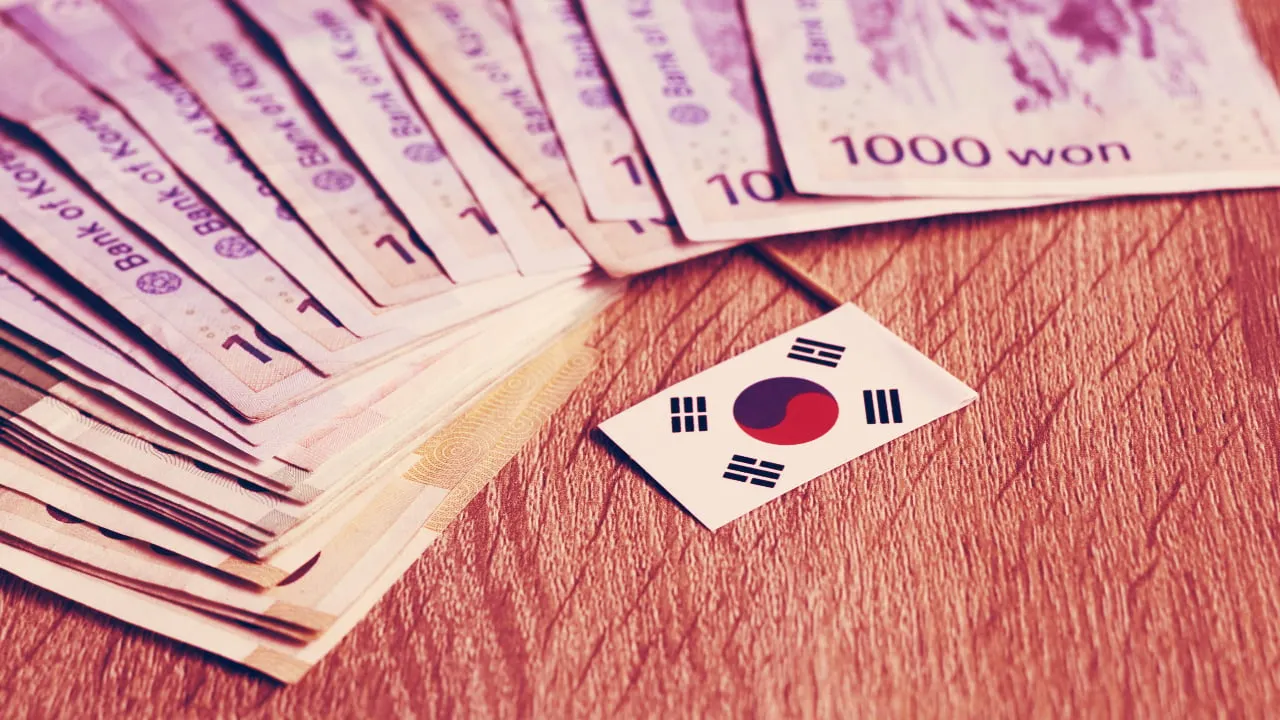In brief
- South Korea is stepping up efforts to disinfect cash.
- Heating banknotes or exposing them to ultraviolet light will kill germs.
- But the CDC says the virus is spread mainly person to person.
South Korea’s central bank is disinfecting banknotes and temporarily removing them from circulation in an effort to control the spread of the coronavirus through the financial system.
The Bank of Korea said it is putting currency notes through a high-heat process and then keeping them in a safe for 14 days, before releasing them back into circulation, according to a report in Reuters. That should be enough time to remove any trace of the virus, the bank said.
Routine procedures for disinfecting banknotes have been stepped up in the country. Those involve heating notes 150 degrees Celsius for a few seconds, a bank official told Reuters. Another way to kill germs is to expose the notes to ultraviolet light.
The number of coronavirus cases in South Korea has exceeded 6,000 this week with 42 deaths reported. Outside of China, the South Korea of the countries hardest hit by the virus.
Earlier this month, the World Health Organization warned about the dangers of using cash. It said that banknotes could carry the deadly coronavirus. The agency recommends people switch to contactless payments. While the WHO did not specify which types of payment methods could fill the gap, cryptocurrencies and other forms of digital payment could offer an alternative.
Not alone
South Korea is not alone in its concerns of fiat money spreading the outbreak. Last month, China announced that it was also using similar efforts to disinfect and isolate used yuan bills as part of efforts to stop the spread of the coronavirus.
The Bank of England has also acknowledged that banknotes "can carry bacteria or viruses" and urged people to wash their hands regularly.
And in the US, where the spread of the virus is still in its early days, the Federal Reserve has begun holding dollars it receives from Asia before recirculating them amid concerns over the spreading coronavirus outbreak, a spokeswoman confirmed with the Wall Street Journal Friday.
When the the Fed’s regional reserve banks receive currency shipments from Asia, it will now set aside the bank notes for up to 10 days before processing the deposits.
The move is a precautionary one, and it’s not known how effective it will be.
The Centers for Disease Control and Prevention said the virus primarily spreads mainly through person-to-person contact. “It may be possible that a person can get COVID-19 by touching a surface or object that has the virus on it and then touching their own mouth, nose, or possibly their eyes, but this is not thought to be the main way the virus spreads,” the CDC said.
But these efforts to clean banknotes depend on people returning their notes to the bank for replacement. Until that happens, the dirty notes continue to get passed around.
Going cashless
In South Korea, the central bank has set an ambitious goal of being cashless by 2020. In the meantime, however, about 20% of the population still uses cash.
While most people in China use smartphone payment services such as Alipay, the elderly, visitors from overseas, and people from rural areas are still reliant on cash.
Being fully digital, Bitcoin and other cryptocurrencies also provide freedoms to such problems. However, widespread merchant adoption has been slow to catch up. And for now, contactless cards may be the better option for most people trying to avoid dirty fiat.





